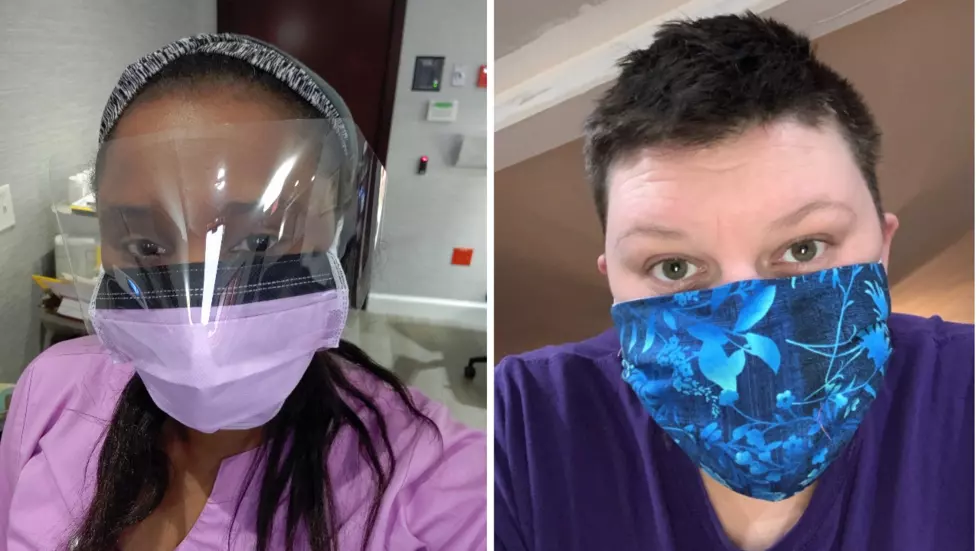
Wearing a Facemask? Here’s What You Need to Know
We know that N95 respirators and surgical masks, along with other Personal Protective Equipment (PPE), are critical for ensuring the safety of frontline workers in hospitals, healthcare facilities and other emergency environments. But as we move further into the COVID-19 crisis, we are learning more about how people outside the healthcare industry may also benefit from wearing facemasks, even ones that are handmade.
In fact, the Centers for Disease Control (CDC) recently changed their position on whether the general public should wear facemasks; their stance that only frontline workers don masks was challenged by the United States Surgeon General.
Now that the CDC recommends that the community at large start wearing protective masks, it’s not a matter of simply affixing one to your face. “Wearing a mask continuously poses its own risks,” says Maria Duclos, BA, RN, CHPN, Director of Patient Transitions and Infection Control at Regional Hospice in Danbury, Connecticut. In accordance with guidance from area hospitals, consider the following safety practices to protect yourself from inadvertent harm if you choose to wear your own mask while not involved in care that requires PPE:
- Practice excellent hand hygiene and avoid touching your mask. Touching your mask with unwashed hands may transfer infectious material to it.
- If you must adjust your mask, first wash your hands thoroughly, adjust the mask and wash your hands again.
- If your mask becomes wet or soiled, remove it, as it may cause a greater risk of infection if left on.
- If you plan to reuse your mask, follow these steps between uses:
- Wash your hands before removing your mask.
- Remove your mask and place it in a bag (paper is better to allow the mask to dry out thoroughly).
- If the mask is visibly soiled or ripped and damaged, throw it away.
- When reusing, practice good hand hygiene as described above.
- If you have more than one mask, consider alternating use to give maximum time between uses for drying.
- If you are using a cloth mask, remove, place in a bag for transport and launder between uses.
Regional Hospice is an almost 40-year-old non-profit organization that supports terminally ill infants, children and adults in the community and at their residential Center for Comfort Care and Healing in Danbury. Their mission is to create human connection and honor each patient’s end of life journey. To learn more about Regional Hospice, please visit RegionalHospiceCT.org
In addition, to support their efforts to purchase critical PPE for their frontline works, please consider donating to the Regional Hospice PPE fundraiser.
How to Sew a Face Mask
LIVE UPDATES: Coronavirus in Danbury, CT
More From The Wolf









